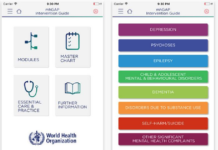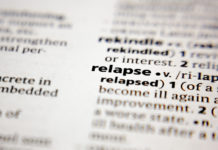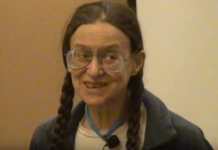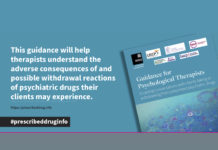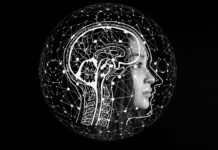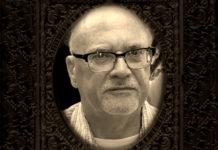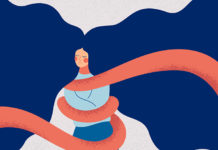Pervasive Industry Influence in Healthcare Sector Harms Patients
Experts across the globe point to the harms of drug companies’ influence on research, practice, and education in healthcare noting that it compromises patient care.
Researchers Critique WHO Mental Health Technology
Researchers critically examine the underlying assumptions and implications of a new WHO mental health technology designed to streamline psychiatric assessment internationally.
What Does ‘Relapse’ Mean? Definitions Used in Antipsychotic Trials Are Unclear
Antipsychotic drugs are prescribed on the basis of trials that demonstrate a higher rate of ‘relapse’ in people who are withdrawn from these drugs compared to those who continue to take them. Yet, incredibly, there is no consensus about what ‘relapse’ means in this situation.
Young Adult Food Insecurity Linked to Poor Mental Health
A new study identifies significant links between food insecurity and sleep, anxiety, depression, and compromised wellbeing among young people in the United States
Statisticians: Current Policies Approve Ineffective Treatments
Current standards for clinical trials rely on statistical methods that allow for ineffective treatments to gain approval.
The Matrix: Disentangling Anti-Psychiatry
For the last forty years, psychiatry has been comprehensively critiqued from a myriad of disciplines including sociology, psychology, and the user movement. Is there anything that can be salvaged from the psychiatry project? How would a psychiatrist practice ethically in such a nefarious environment?
In Memory of Julie Greene
With deep regret, Mad in America announces another loss in our contributor community. Julie C. Greene, writer and antipsychiatry advocate, lost her battle with kidney disease on November 29 at her home in Beaver Falls, Pennsylvania. Julie had been an MIA blogger since 2014, including several pieces on the dangers of lithium.
Learning to Speak the Subtle Language of Pain
It gradually dawned on me that my back pain was another mask that depression wore. Instead of crying and feeling overwhelmed or giving up, my body was sending distress signals to help me realize that I was in a difficult spot. I began to realize some of the metaphorical aspects of the pain I experienced.
Measuring How Mental Health Professionals See Service Users’ Rights
A new scale has been developed and validated to examine beliefs held by mental health professionals towards service users’ rights.
Psychological Support for Psychiatric Drug Withdrawal
We discuss the release of guidance which has been specifically written to support UK psychological therapists and their clients in having discussions about taking and withdrawing from psychiatric drugs. The guidance is a collaboration between counsellors, therapists, psychologists, peer support specialists and psychiatrists.
Experts Raise Ethical Concerns About Machine Learning in Medicine
The use of machine learning algorithms (known as artificial intelligence) in the medical field raises a slew of ethical concerns.
A Tribute to Stephen Gilbert, Warrior Behind Enemy Lines
Stephen Boren, who posted here under the name Stephen Gilbert, passed away November 12 after a battle with cancer. Stephen offered a unique perspective, working as peer support staff at the same hospital where he had once been held as a patient. We will miss his daily presence on MIA.
How Antidepressants Shape Young Women’s Sense of Self
Young women’s narratives indicate ways antidepressants have shaped their sense of self.
D-Cycloserine Supplement Does Not Add Much to Exposure Therapy
A closer look at a new study reporting that the supplement D-cycloserine improved anxiety when used with exposure therapy.
Lighting a Spark to Heal Trauma: An Interview with Jesse Zook Mann
An interview with Jesse Zook Mann of Mental Health Media about trauma, medication withdrawal, and the possibility for recovery. Jesse was severely harmed by psychiatry, but uses language that reaches people who identify with the mainstream paradigm of mental health and mental illness.
From Stoned to “Schizophrenic”: My Mental Healthcare Journey
During a period of self-doubt, I chose to see a psychiatrist because I was engulfed in negative thoughts and couldn't find a direction in life. The slightest joys came only when I was high. Though my weed addiction was likely causing all of my symptoms, my psychiatrist’s response was to prescribe antipsychotics.
Involuntary Hospitalization More Likely With Psychosis Diagnoses and Few Resources
New study links involuntary hospitalization with psychotic diagnosis, previous involuntary hospitalization, and economic deprivation.
The Darker the Night, the Brighter the Light: Five Lessons Learned This Month
One month ago I suddenly found myself in a very dark place. There is a depth of wisdom that comes from dark or challenging emotional states, that with good support and hard work looking at the underlying (and sometimes ancient) dynamics can lead to enormous insights and compassion.
Rates of Opioid Use Remain High Among US Adolescents
Researchers investigate trends in opioid use, prescriptions, misuse, and access reported by adolescents and young adults.
How Race and Class Impact Schizophrenia and Substance-Use Diagnoses
A new article explores how psychiatric diagnoses are differentially applied to people of different racial and class backgrounds.
Seven Strategies to Avoid Retraumatization While Working with Psychosis
Stories related to psychosis can be intense, and can lead to traumatic recall when a sufferer retells them and does not feel contained or believed within the relationship. I have a number of suggestions for how to encourage the telling of stories without retraumatizing survivors in group settings and in individual encounters.
Dissecting the DSM Debate: Researchers Analyze Critiques Across Audiences
A new study systematically explores critical reactions to the DSM-5 and identifies unifying themes.
Despite Claims, EPA Supplement Does Not Improve ADHD Symptoms in Youth
A new study reports that the supplement EPA improved ADHD symptoms but a closer look calls these results into question.
Reflections on a Decade of Assertive Community Treatment
Sometimes I am crazy and sometimes I need help, but that help must not be forced upon me. I need to direct my own care; I need to be listened to. ACT is a method of social control that has more to do with saving money than assisting those in need. Money is saved by turning patients' homes into hospitals.
MIA at Eight Years: Are We Fulfilling Our Mission?
Mad in America is about to turn eight years old, and as we are launching a fundraising effort to keep us going through 2020, I think it’s appropriate to ask the relevant question: Are we accomplishing what we set out to do?


